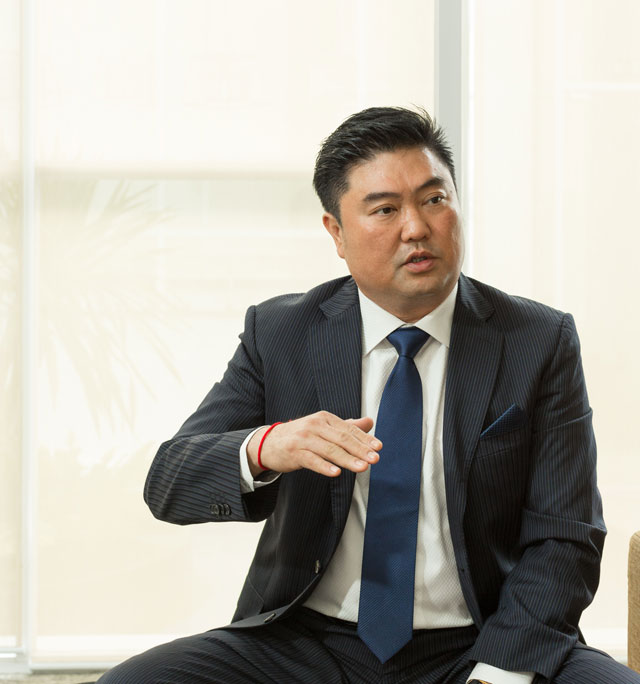The executive chairman and CEO of Oxley Group, Ching Chiat Kwong, plans to bring
a bit of London to Phnom Penh
By Christian Vits
You have been a private housing developer working in Singapore since 2006. How did you come to end up in Cambodia?
In 2012, I stopped buying land in Singapore and I went to Malaysia. The next country I went to was Cambodia. The third was China and the fourth was England. This year, we launched our first project in London, called Royal Wharf. It is16.2 hectares of land in East London, with a total of 3,400 apartments, offices and townhouses. When I came to Phnom Penh, I saw traffic jams and a huge young population base. I also saw annual GDP growth of 7.5% and read that tourist arrivals are forecast to reach five million by 2015. That’s basically how my project,
the Bridge, came about.
Can you tell us a little about the Bridge?
I’ve been branded the ‘Shoebox King’ because I built the smallest apartments in Singapore. It’s not a term I like. I think, in a vibrant city where everybody’s on the move, all you need is a bedroom, kitchen, a small bathroom and a dining room. When I came to Phnom Penh, people were sceptical about whether the concept of SoHo-style, 37-square-metre living spaces would work because people here are used to staying in big apartments. I put a lot of work into promoting the concept, and I now feel confident that we will do well. The next step is to choose the right quality contractor; a contractor who will look into the interior quality as well as the structure.

The Bridge will be 45 storeys. That will make it the tallest building in town…
Yes, but somebody will build something taller one day.
Do you think Phnom Penh is one of the region’s most vibrant cities at the moment?
Phnom Penh may not be considered the most vibrant city, but it has the potential to become one of the most vibrant, and I want to be part of it. There’s huge potential in this city because there are so many foreigners here and, for example, so many restaurants. You can get German, Japanese, Korean and Brazilian food – and it’s not expensive to eat out. That’s why I’m developing another project here. I’m going to bring London to Phnom Penh. I want people to feel that they do not need to be in London to feel like they’re in London.
When will this new project be launched?
Very soon. When I was in London a few weeks ago, I was thinking about how to build villas along the river. I thought about providing full facilities to families, and having views of the swimming pool from your living room.
Returning to the Bridge, where are most of the homebuyers from?
Between 60 and 70% are Cambodians. The rest are mainlt Singaporean, Malaysian, Chinese, Taiwanese and Japanese.
Do you think people are buying the units for themselves or as an investment opportunity?
Some buy the apartments for their children, some to live in themselves, and some buy for investment reasons. People who buy the units as an investment usually buy the whole floor – and not the cheapest units.
What are the three main reasons to invest in Cambodia?
If Cambodia has a problem, it’s that there are too many business opportunities. We are in at the early stages of development. Of course, you shouldn’t expect them to be the same as in your home country, especially when it comes to efficiency. Nevertheless, the potential is there. The reason to invest in Cambodia is because the country is developing. Secondly, it has a huge young population. These are the
early stages of what constitutes great development.
So will Cambodia continue to be important to your business in the future?
Yes, I’m here to stay and I’m going to set up a management company to take care of The Bridge.

